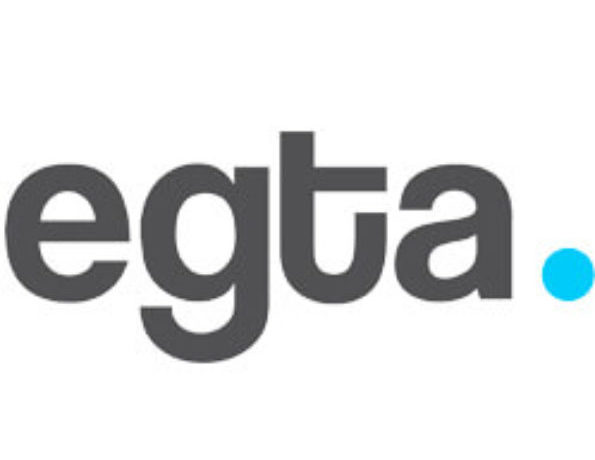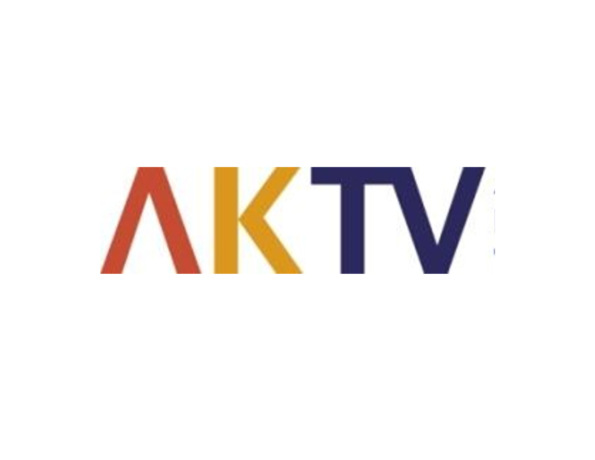The European Commission’s proposal for a revised Audiovisual Media Services Directive in May 2016 promised to create a fairer environment for all players, to ensure adequate protection for consumers, especially children, to sustain the production of original European content and to introduce more flexibility on the advertising rules for broadcasters.
The original proposal was a step in the right direction and was welcomed as such by European sales houses and broadcasters, in particular the flexibility on advertising time as well as the simplification and liberalisation of the rules on sponsorship and product placement.
As the trilogue negotiations come to a conclusion, egta members would like to urge decision-makers to keep those initial objectives in mind when agreeing on the final balance of the text.
Broadcasters are increasingly concerned at the potential erosion of what was a modest evolution of the rules in the first place. Since the publication of the initial proposal, online advertising sales have been growing steadily and in 2016 became the main media for advertisements on a pan-European level, with €36.8 billion in revenue, surpassing TV advertising (€31.4 billion)1. As things stand, apart from the moderate liberalisation of the advertising time, there will be little to no discernible flexibility in the qualitative advertising rules, the articles on sponsorship and product placement and the other linear specific advertising provisions.
We strongly urge the Parliament, Member States and the Commission to take the opportunity of the final trilogue meetings to ensure that this revision process delivers on its original objectives of a competitive, creative and safe European audiovisual landscape.
This could be achieved by introducing measures safeguarding broadcasters’ signal integrity, simplifying the rules on product placement and sponsorship as per the Commission proposal, liberalising isolated adverting spots in article 19.2 and ensuring that no further measures adversely impact broadcasters’ current revenue streams.
To secure a robust level of consumer protection, a fair environment for business and competition with other actors, all content providers, including video sharing platforms, should also adhere to the basic advertising principles in articles 9, 10 and 11. In a fast-changing market place where all content providers, both online and offline, linear and non-linear, are competing for audience and advertising revenues, qualitative prescriptions should be simplified and harmonised in order to secure a more equal environment, so that the financing of quality content shall be sustainable in the longer term.
As noted throughout the studies that informed the Commission’s impact assessment, Europeans have never been presented with more choice of audiovisual content. It is in this context that broadcasters need to secure future proof revenue streams that will allow them to continue offering the content that viewers expect and are interested in.
Therefore, the European audiovisual sector needs a regulatory environment that reflects the current market place, provides proportionate and balanced rules and will remain relevant as technological developments occur. We strongly believe that simplification and legal certainty in the AVMSD will match those objectives.
egta is the association representing television and radio sales houses that market the advertising space of both private and public television and radio stations throughout Europe and beyond. egta counts 140 members across 40 countries. www.egta.com
1 The EU online advertising market – Update 2017, European Audiovisual Observatory, 2017.


Media operators and advertising agencies from professional associations support the new amendment to the Pharmaceuticals Act, which will be voted on at the plenary session of the Chamber of Deputies on Friday and which proposes to repeal the latest amendment to the Act on Regulation of Advertising. In the last year, the Act on Regulation of Advertising was amended as a rider to the Pharmaceuticals Act. The responsibility for the compliance of advertising content with the law was extended to the broadcasters and it concerns selected types of product – medicinal products for human use, food supplements and foodstuffs intended for particular nutritional uses and for infant nutrition. Until then, it had only been the subjects, which had helped create the advertising content, who had been responsible for the compliance of advertising of such products with the law, as is the case with other types of products. The amendment seeks to return to the original form of the Act on Regulation of Advertising.
The problematic amendment, which introduced the joint liability of the disseminator of advertising for the compliance of the advertising content (medicinal products for human use, food supplements and foodstuffs intended for particular nutritional uses and for infant nutrition) with the law, has been effective since April 2017. The amendment has not contributed to increasing the level of consumer protection. Instead, it has proved to be easily misused in the competitive fight among the producers of the products concerned. In the spring of last year, the entire media sector warned that extending the responsibility for the compliance of advertising content with the law to the disseminator of advertising could not contribute to increasing the level of consumer protection. The reason for this is that the advertisers do not have any professional qualification or legal tools to gather the necessary background information that would help them professionally assess, for instance, whether the advertised product actually strengthens one’s immune system or not.
“Media operators understand that the aim of the amendment was to provide greater consumer protection but transferring responsibility to the advertiser is not the right way to do so. Consumer protection can only be enhanced by effective enforcement of legal obligations of advertisers. We hope that the legislators will understand this and that they will support the amendment, which will return the text of the law on regulation of advertising to its original form. We also hope that they will reject the current amendment to the Act as non-conceptual and non-systemic,”
commented Ján Simkanič, Chairman of the Executive Board from The Association for Internet Progress (SPIR).

The European Broadcasting Union (EBU), the Association of Commercial Television in Europe (ACT) and egta, the association of television and radio sales houses are celebrating the trustworthiness of television on the occasion of World Television Day (21 November), as declared by the United Nations.
This year again, the three organisations have produced a 30-second video clip emphasising the role TV has around the world as provider of trusted content. It will be aired by broadcasters across Europe, Asia, Canada, USA and Australia on 21 November. To celebrate their love of television, viewers are encouraged to use the hashtags #WeloveTV and #WorldTVDay on social networks on 21 November.
The video highlights that now, more than ever, the trustworthiness of television plays a central part in our daily lives as it keeps viewers up to date on what is going on at home and abroad and brings the world’s attention to what matters. Editorial responsibility, truthful reporting, top quality content, the safest environment and the reliable, independent measurement system are the DNA of TV. This makes it a unique medium for world-class content and a fully brand-safe environment… no matter on which device.
Recent studies have shown:
- that levels of trust in traditional media are increasing across Europe as people question the veracity of what they see and read online. In 70% out of 33 countries surveyed, people indicate they tend to trust TV and in 11 countries TV is even considered the most trusted medium. 1
- that the reputation of traditional broadcast media outlets has proven more resilient than social media platforms and online-only news outlets, primarily as a result of the depth of coverage being delivered. In all markets, television is considered the second most trusted medium (after printed news magazines) with 69% of consumers trusting the news source. 2
- that in a context of growing concerns over fake news, TV is the most trusted news source across all demographic groups, with Canadians watching 101 million hours of news/week. 3
- that TV is firmly entrenched in the lives of the UK population and TV advertising drives the greatest level of trust and emotional connection (respectively 42% and 58% for population 15+). 4
These collected studies on trust and more can be consulted in a dedicated section on the World TV Day website.
SOURCES
1: EBU based on Eurobarometer 86, EBU Media Intelligence Service, Trust in Media (2017)
2: Kantar – Trust in News (2017)
3: ThinkTV – Concern for Fake News- nlogic, OmniVu, Total Canada (2017)
4: UK, Ipsos/ThinkBox: Attitudes to, and use of, media, technology and advertising (2016)
Caroline Petit, Deputy Director, UNRIC
“Trustworthiness is a key value, now more than ever, to the television industry. This medium must play its role as a safeguard against the growing circulation of fake news, propaganda and hate speech available on an increasing number of communications platforms.”
Magnus Brooke, Chairman of the Board, ACT
“TV’s worldwide audience is not only staying faithful but growing fast as viewers tune in to top quality content made and acquired by broadcasters. We are extremely proud to be among the most trusted media, and are constantly searching for new world-class content to continue to entertain and inform millions of people around the world each week.”
Noel Curran, EBU Director General
“Television broadcasters are proud to have the trust of their audiences. News and current affairs, on television in particular, are core to public service media (PSM). Informing all audiences with independent news and helping them to better understand the world is crucial for a democratic society. Through its Quality Journalism initiative, the EBU is building on the strength of the Eurovision newsroom and developing new services to help public service media sustain audience trust and remain a key source of information for individuals.”
Katty Roberfroid, egta Director General
“At a time when advertisers demand transparency and brand- safety, the trusted environment that television offers seems more relevant than ever. TV excels at offering a premium and sound environment for commercial communications, not only because broadcasters have been operating in this environment for decades, but also because TV is measured and audited by trust-worthy third parties, framed by strict legal rules and its content is produced highly professionally. This is truly the DNA of television even as it transforms digitally to operate on new online platforms. The editorial responsibility vis-à-vis consumers and brands alike remains unchanged – and even emphasised – in the online video sphere.“

The Association of Commercial Television (AKTV), which represents the most important operators of commercial television broadcasting in the Czech Republic, has become a new associate member of egta, the trade association of over 139 television and radio sales houses throughout Europe and beyond. AKTV will represent the Czech Republic, along with the existing egta members – broadcaster groups Nova and Prima, and also the AtMedia Group.
In addition, AKTV has joined The Global TV Group, an informal grouping of broadcasters’ and sales houses’ trade bodies in Europe, the USA, Canada, Australia and Latin America, whose joint objective is to promote television.
In the 43 years of its existence egta has significantly expanded the sphere of its work as well as its membership, which currently comprises 139 members in more than 40 countries. egta offers its members support in research, networking, marketing, advocacy and regulatory assistance. It is an organizer of multiple international conferences and seminars. The association’s vast network also facilitated the establishment of The Global TV Group, a worldwide initiative which connects associations of television broadcasters and advertising sales houses from all over the world.
„We appreciate the support and trust provided by egta in everyday questions of our operation. AKTV´s agenda is wide ranging – from marketing activities to public affairs, for this reason, we value close collaboration and we are happy to use the egta experts’ know-how“ says Jan Vlček, President, the Czech Association of Commercial Television.
„We’re very proud to welcome AKTV to the egta family as an associate member and are looking forward to working closely together towards our common goal: the promotion of television.“ adds Katty Roberfroid, Director General, egta.
About AKTV:
The Association of Commercial Television (AKTV) is an association of terrestrial television broadcasting operators with the goal of defending, supporting and promoting the common interests of commercial broadcasters in the Czech Republic. AKTV was established in 2017 in response to the growing need among commercial television companies to defend and promote their interests. AKTV intends to represent their interests vis-à-vis government authorities and to be a partner in the dialogue as part of making both national and European laws. It will also focus on protecting copyrights and marketing and educational activities in the field of television broadcasting.
About egta:
egta is the European trade association for marketers of advertising solutions across (multiple) screens and/or audio platforms, with the aim to help its members protect, grow and diversify their business around content edited and broadcast on a linear basis by their TV channels and/or radio stations.
egta’s members are sales houses that commercialise the advertising space of both private and public TV and radio channels throughout Europe and beyond. egta’s strength lies in the diversity of its members: they are independent sales houses or commercial departments within a broadcaster’s structure. They include large companies in major markets and medium-sized companies in smaller markets.

The new Association of Commercial Television (Asociace komerčních televizí, z.s., “AKTV”), established by CET 21 spol. s r.o., FTV Prima, spol. s r. o. and Stanice O, a.s. started operating in February 2017. The principal objective of AKTV is to associate commercial TV broadcasters in the Czech Republic and collectively defend, support and promote their interests in liaisons with government and EU authorities. The first President of AKTV is Jan Vlček, Executive Director and Sales Director of Nova Group. Marie Fianová is the Secretary and is in charge of running the Association.
The Association of Commercial Television was founded in response to the growing need among commercial television companies to defend and promote their interests. AKTV intends to represent their interests vis-à-vis government authorities and to be a partner in the dialogue as part of making both national and European laws. It will also focus on protecting copyrights and marketing and educational activities in the field of television broadcasting
„Over the last few years, we have seen an increasing number of legislative changes and modifications with direct implications for commercial broadcasting, both on the national and European level. As a result, we have felt the need to express the opinions of commercial broadcasters on issues such as the restrictions on advertising in TV broadcasting, which are currently being discussed by the European Parliament,” says Jan Vlček, President of AKTV. “In addition to the legislative agenda, we also wish to focus on illegal distribution and retransmission of our channels’ broadcasts,” Mr Vlček adds.
The Association’s supreme body is the General Meeting, in which the founding members are represented by votes at a ratio of 46 : 46 : 8 (Nova : Prima : Óčko, respectively). AKTV’s governing body is the Management Board, with members Jan Vlček and Štěpán Peichl on behalf of CET 21, Marek Singer and Vladimír Pořízek on behalf of FTV Prima and Štěpán Wolde on behalf of Stanice O. The Association will also involve five working groups that will provide the expert inputs for AKTV’s activities. The General Meeting will assess applicants for membership on an ongoing basis taking into consideration the criteria defined by the AKTV Articles of Association. The principal criterion for the admission to AKTV is operating terrestrial television broadcasting over the entire territory of the Czech Republic.



